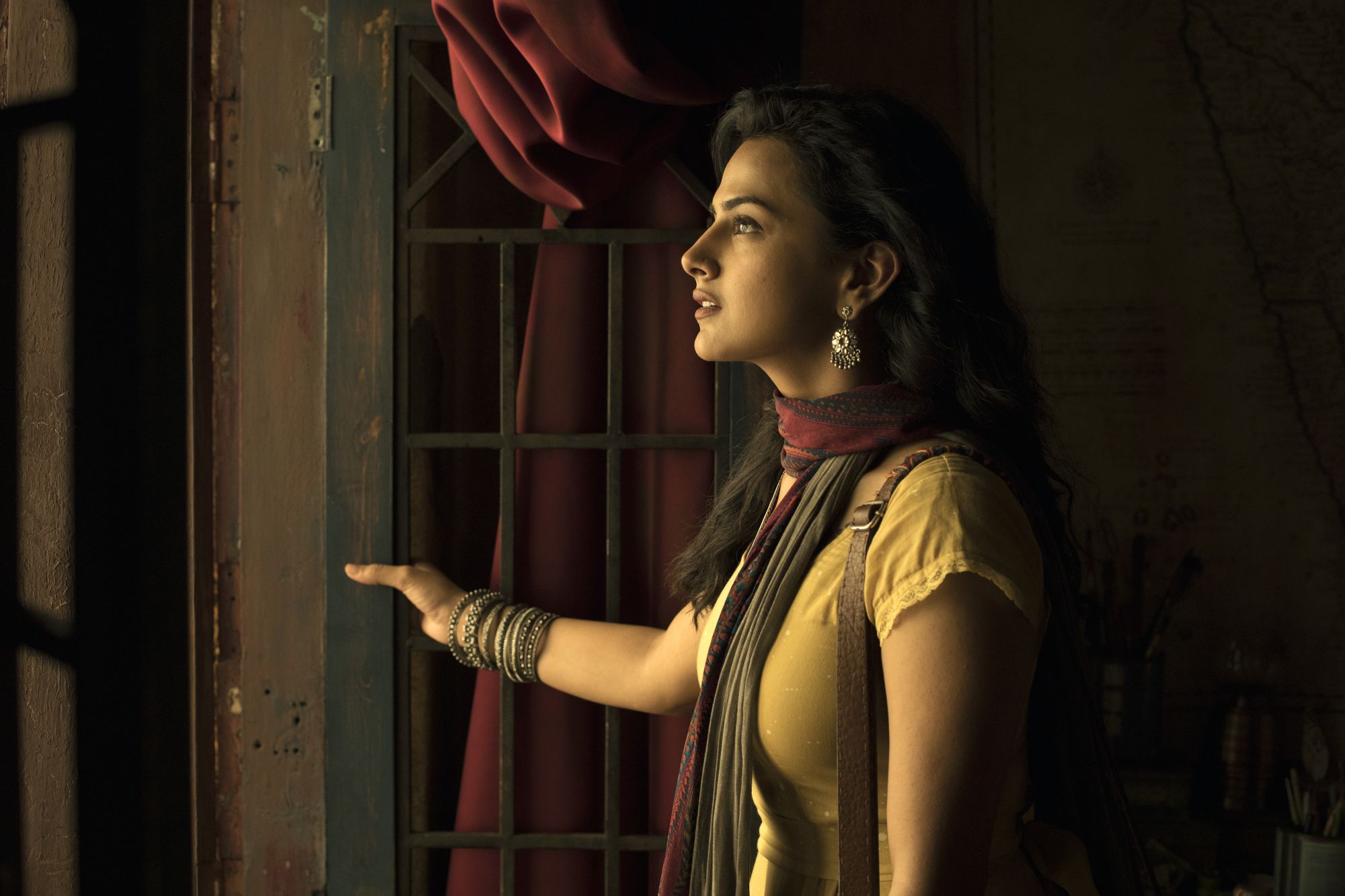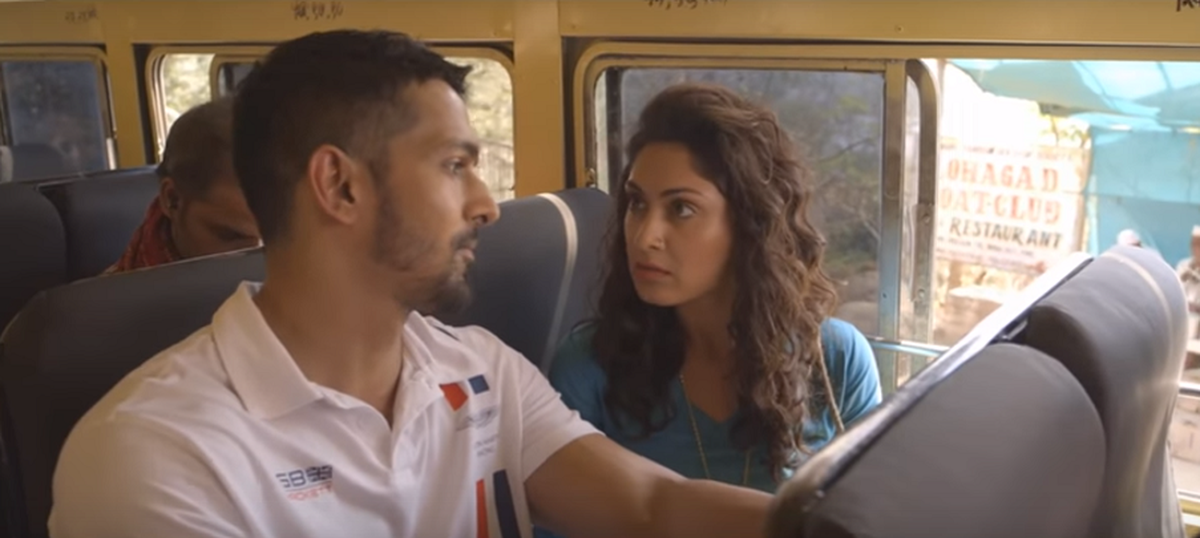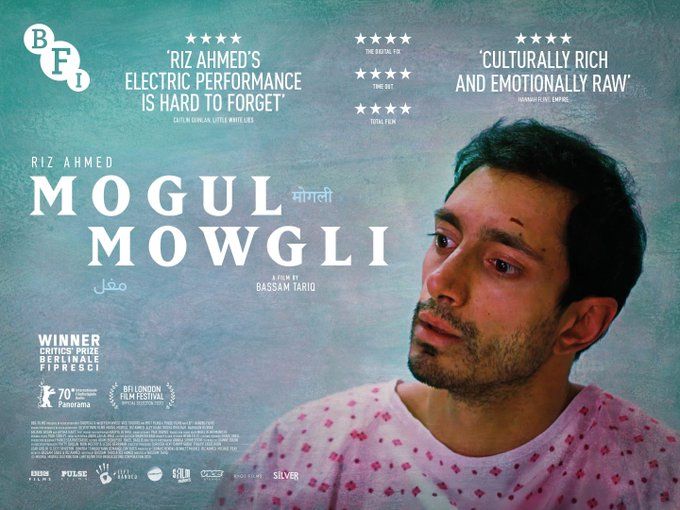By Meghana Krishnamurthy, Second Year, Film & Television
A mother tongue holds a great importance to many individuals and is often the element of their identity that they most strongly identify with. My own mother tongue is Tamil, an ancient Dravidian language originating in the south of India, taking its place ahead of Sanskrit as the oldest language in the world.
My mother tongue is the strongest affiliation I have to my own culture here in the UK. I connect with friends who speak the same language, and it feels like I have found my own community; this reminds me of how important a language can be, especially in the avenue of film.
Reading, writing, and speaking Tamil can be especially difficult compared to other Indian languages and, to the untrained ear, it may even sound jarring. In spite of these, the film Maara (2021) makes the language sound like a stunning poetic composition. A remake of the Malayalam original Charlie (2015), the film is about a woman, Paaru (Shraddha Srinath), who embarks on a journey to find the man who painted a fairy-tale she heard as a child on the walls of a coastal town.

The dialogues and the music are spectacular, with lyrics flowing magically, allowing the audience to relate to the elated expressions that Paaru herself experiences. The words move with the wind, as unruly as the wandering protagonist played by Madhavan. They swim with the current of the relentless river like Paaru’s journey and evoke a beautiful sense of admiration for my mother tongue.
The film isn’t a conventional love story either, rather about a long-lost love and the protagonist’s role in all of it. It is the thirst to learn more about the mysterious protagonist Maara which keeps you invested in the whimsical story. And the language isn’t the only familiar part for me. The amazing visuals and cinematography of the coast in the south of India, and the sprawling hills of tea plantations bring back strong memories. It reminded me of where I used to spend my summer holidays, either by the beach in Chennai, watching the sunrise from the blue horizon, or in the hill stations in the mountains with my family, driving through the plantations and discovering plants like black pepper and vanilla tucked away.
Funnily enough, I don’t consider Tamil to be my only mother tongue; Hindi has also played a huge role in my cultural identity. As India’s national language, I studied Hindi in school and I picked up quite a lot from the various films I’ve grown up watching.
Unfortunately, in India today, English is a symbol of power and class in society. This is expertly explained in the short film, Khamakha (2016), and many Indians sadly prefer the universal language to their own mother tongue. Khamakha tells the story of a businessman who finds he has to travel in a local bus when his car breaks down.
On the bus he encounters a striking woman, but it becomes apparent that she isn’t what he expected. She speaks only in Hindi, and even reads a book in Hindi Devanagari script, appearing highly educated, even claiming to know ten languages fluently. This short film encapsulates the true handling of language spoken by millennials and Gen Z, but could also be a way to explain that the loss of a language does not just mean the loss of communication, but of a culture itself.

Malcolm & Marie is a puzzlingly dense film which asks big questions about love
Five films about the HIV/AIDS crisis to watch this LGBTQ+ History Month
Culture is very important, especially for migrants or generational immigrants, as they can feel that the language sets them apart from the western world that they grow up in and allows them to develop a distinct identity, such as in Mogul Mowgli (2020). The film follows the story of a rapper, Zed (Riz Ahmed), who returns home to London on the verge of a tour, and succumbs to a degenerative illness.
I was stunned as I watched this film. Forty percent of the film’s dialogue is in Urdu/Hindi, and do not have any accompanying English subtitles as a default. The English viewers watching the online screening with me could not understand what the characters were talking about, and in some twisted way, this made me laugh, because I could clearly understand every word of the warm, familial conversation that Zed was having with his mother. This was extremely fascinating, and as I decoded this, I realised that this was the reality that director Bassam Tariq wanted to bring to the screen.
The reality that bilingual or multilingual families go through at home; we don’t speak English all the time

This representation is often ignored in film and TV. But when dialogues are changed to English verse, accommodating Western viewers, what they don’t know is that it takes away everything that has formed this identity, stripping a language of the significance it might have for someone.
A few scenes later, Zed recounts this in a conversation with his family at the dinner table. He laments about how an Urdu name like Daniyal, is anglicised to Daniel – only to ease the English pronunciation. By doing so, it takes away the meaning that an Urdu name holds, severing the association with an entire culture. Zed’s point is absolutely valid, as this has happened to my own name many times. A language becomes such a cornerstone of its culture, and it is crucial that this value is not lost in translation.
Featured: IMDb, Humaramovie
Do you prefer watching films in your mother tongue?









